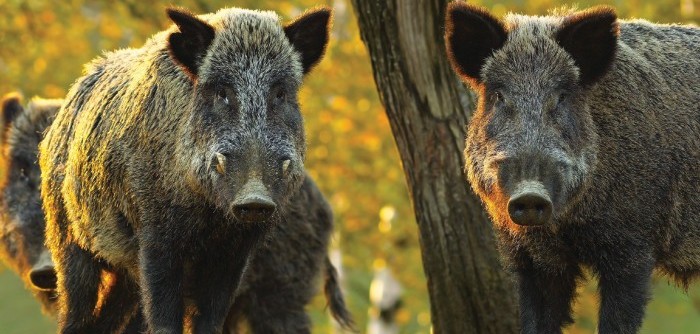African swine fever (ASF) could be difficult to eradicate in Belgium and possibly beyond, given the number of wild boar in the region, according to the Animal and Plant Health Agency (APHA).
ASF was confirmed in four wild boar in the Belgian region of Luxembourg, just a few miles from the French border, last week. Three were adult wild boar found dead and a state of decomposition, while other was a young weakened animal which was shot dead. It is understood a further three cases in wild boar have now been confirmed.
This marks the first identification of ASF in wild boar or domestic pigs in Western Europe in several years – Belgium’s last case was in 1985 when twelve farms tested positive as a result of contact with contaminated pig meat from Spain.
The source of this outbreak has not been confirmed, and investigations are continuing. But given the distance between other confirmed cases of ASF in wild boar, it is most likely that infection has again been introduced by infected meat products or fomites (virus carried on clothes or vehicles, for example) from ASF-infected areas, in other words, human spread, APHA said.
The agency added: “These cases reported in wild boar are concerning as there are large numbers of wild boar in this area, crossing EU borders, which is forested. Eradication will be a challenge to be met through close collaboration and information sharing between those Member States at risk.”
Interim protective measures are in place, delineated by the border with Luxembourg and France, but further measures will be discussed at the Standing Committee on Plant, Animals, Food and Feed meeting next week.
Imports of pig meat from Belgium accounted for around 4% of the UK total (23,000 tonnes), mainly primary fresh/frozen pork, from January to July, according to HMRC data. Most of this is primary fresh/frozen pork, around half of which is in the form of fresh pork cuts. Belgium is a significant supplier of loins to bacon manufacturers.
There has, however, been no change to the UK’s ASF risk status. The risk level of the virus entering the country was recently increased to medium on a temporary basis, following a surge of cases in central and eastern Europe, particularly Romania. This risk level will remain in place,
The risk of exposure to the pig population in the UK is still considered to be low, dependent on the level of biosecurity on pig premises, although the situation is being kept under review, APHA said.
The agency reiterated its advice to pig keepers to take all steps possible to keep the virus away from their pigs.
“It is important to highlight that all products of porcine origin (including wild boar), unless processed in a certain way, is a high risk commodity from affected areas,” it said.
“These products include fresh or frozen pig meat, salamis and hams, skins and bristles, germinal products, live animals, hunting trophies and any equipment which has had contact with an affected animal or the environment where they are found.
“Pig keepers and veterinarians should remind themselves of the clinical signs for ASF and images and descriptions of clinical signs and pathology of ASF are provided on this link.”




